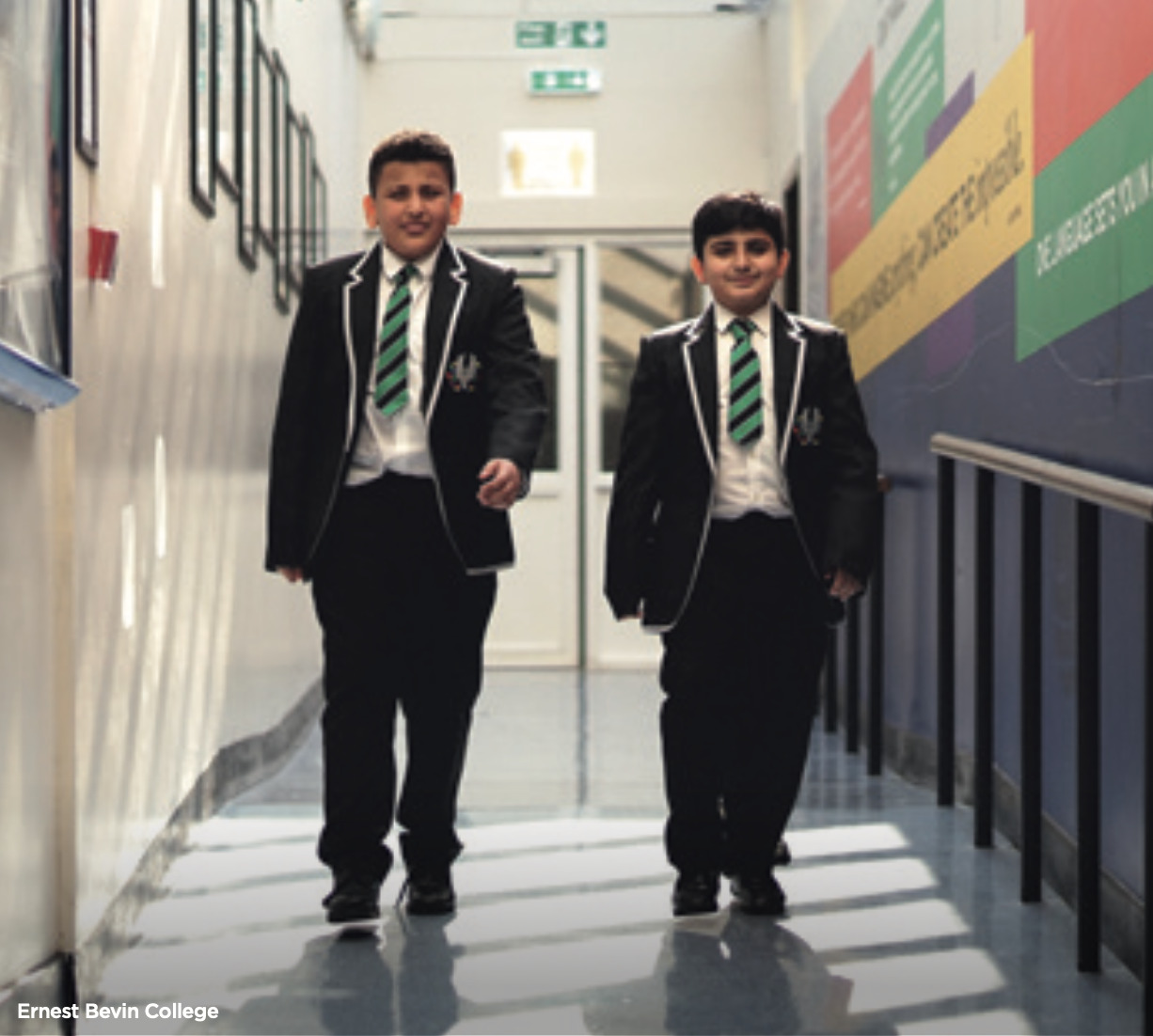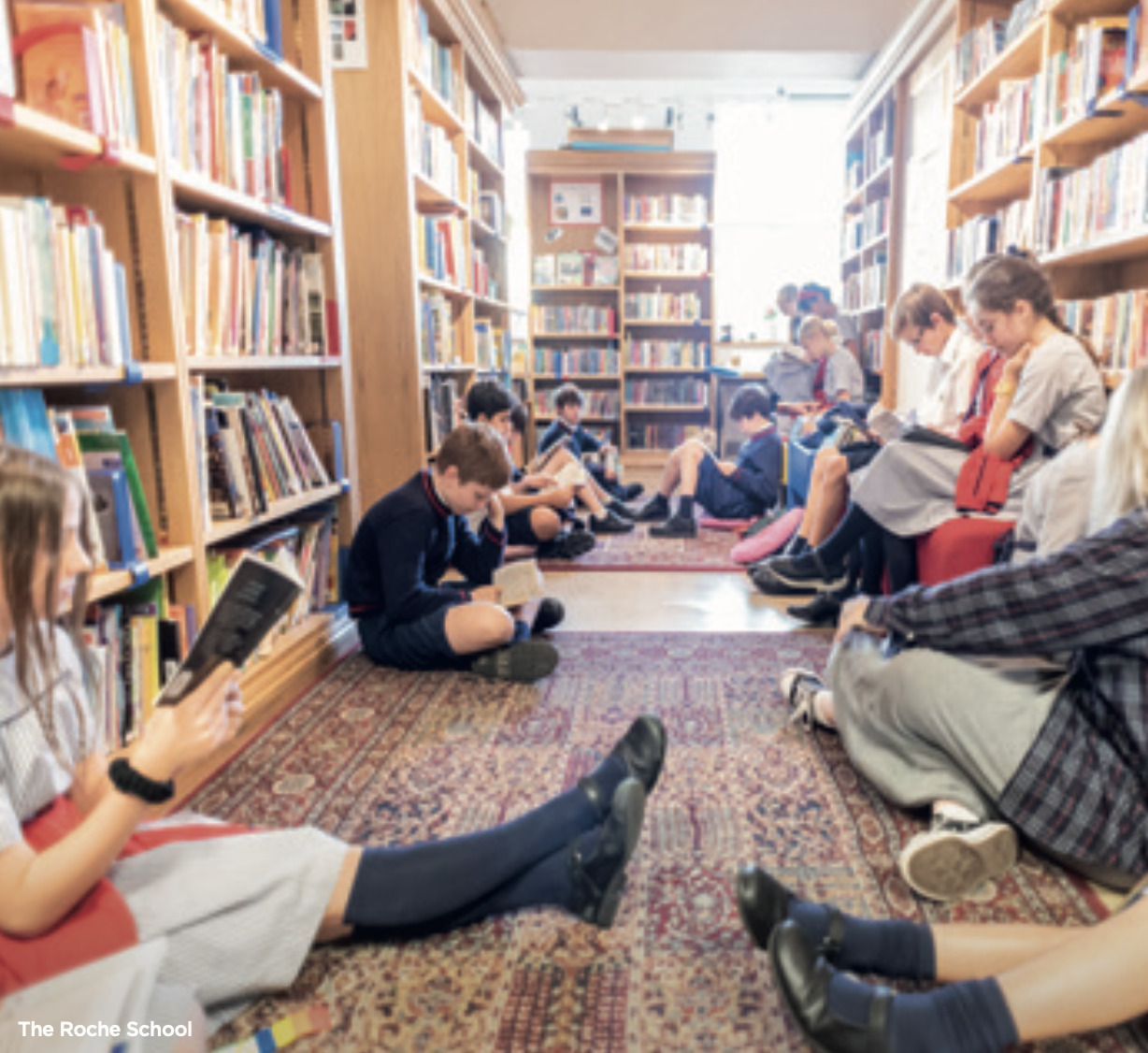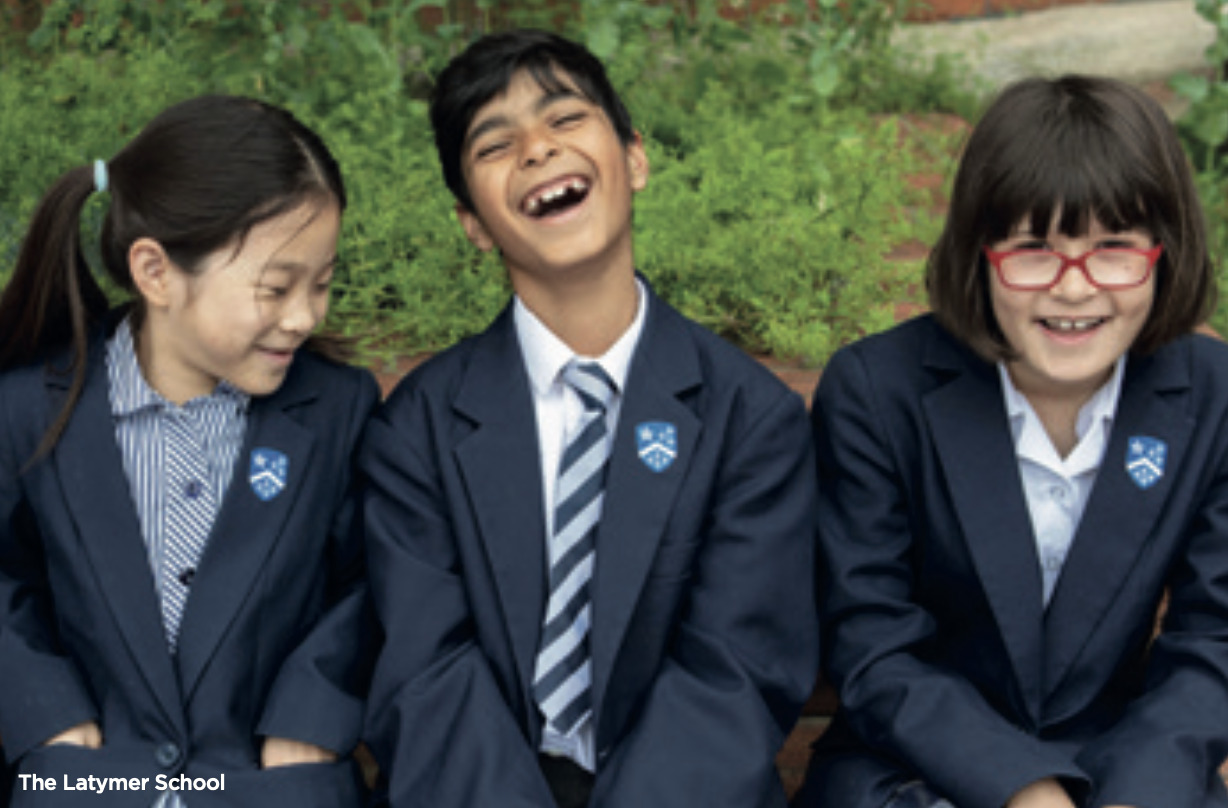Menu
It is 40 years since The Clash released Should I Stay Or Should I Go? Clearly the London-based band weren’t singing about whether to choose a school in town or country – or whether to relocate the whole family out of the capital.
But in the aftermath of Covid, with remote working here to stay in many sectors, it’s a question that is preoccupying many parents.
Throwing into the mix the perennial decision of whether to opt for day or boarding, or single sex or co-educational, can result in families feeling overwhelmed at the combinations on offer.
Headteachers from a range of schools are, of course, keen to promote their own particular brand, but all agree that the most important factor is the child and what suits his or her needs. They recognise that different schools appeal to different personalities and aptitudes.

GROWTH MINDSET
A growth mindset can be developed by encouraging pupils to adopt a can-do attitude, to see challenges as opportunities and understand it is fine to make mistakes. Parents can use similar terminology to communicate confidence in their children’s ability and encourage them to try new things.
• Ban the phrases ‘I can’t’ or ‘I give up’ or ‘I’m no good at this’ or ‘I’m never …’; instead use ‘I’m learning to …’
• Communicate that it is okay to make mistakes when you try hard things; they will be challenging but rewarding and will become easier
• Tell them that when they master something, they can be proud of themselves because it wasn’t easy
• State that you’ve seen them succeed in the past and they can do it again
• Get your child to tell you when they start to get frustrated so you can support them and instil into them that you are confident in their ability.
Source: Thames Christian School
London day schools
While many schools wax lyrical about the attractions of bucolic life, Jane Lunnon, Head of Alleyn’s School in Dulwich, south London, champions the benefits of being
a school in the capital. It is one of many impressive day schools across a belt of south London including The Roche, Streatham & Clapham High School and Dulwich College.
“You can see the City of London shining on the horizon. London is your classroom and if you’re tired of London you’re tired of life,” Lunnon says. “It’s so cosmopolitan and diverse, you can’t walk down the street without being aware of amazing works, great architecture, energy and being part of something much bigger than yourself. Every day you’re looking beyond yourself which helps offset the natural solipsism of teenagers which is enhanced by social media. That’s what a big city can do.”
Pupils thrive at an urban day school, she adds, because they are offered many different ways in which to define themselves whereas at a boarding school there is no escape from the same identity. Former boarding pupils are far more likely to identify themselves by their school in later life, she notes.

BENEFITS OF SINGLE-SEX SCHOOLS
A visit to any single-sex school will show you just how much our young people thrive in this environment. Often, the vibrancy, collaborative spirit, support networks and life- long friendships formed in our schools are unrivalled. Pupils are able to wholeheartedly embrace all opportunities on offer with real enthusiasm, and without stereotyping, and as a result our young women are able to take their places as the trailblazers and leaders of tomorrow.Pupils in single-sex environments develop the skills and confidence they need during their younger years so that they can put these skills into practice and embrace the challenges ahead once they leave us. They feel safe and supported in an atmosphere that genuinely encourages their individuality, nurturing in them the aspiration that there is no limit to what they can achieve.
Source: James Allen’s Girls’ School (JAGS )
London day v out-of-London day schools
For those choosing to move their child or family outside the capital there are numerous options – relocating the whole family to somewhere within easy access of London, sending your child to board or picking a school within commuting distance of your existing home.
The high quality and reputation of independent schools in the capital and day and boarding schools in the Home Counties gives plenty of choice.
Outside London these include Cranleigh, Ardingly and Woldingham, a Catholic girls’ day and boarding school set in 700 acres of Surrey countryside. It is a 25-minute commute from Clapham Junction and has its own train station in the grounds.
Kerri Fox, Senior Deputy Head at Woldingham, says of the location: “We have a lot of London families who could have chosen city schools but love the green space. We all know the benefits of nature, it takes away the stress of being in a city centre or an urban environment. It’s a gentler, kinder environment which helps
you psychologically. The girls go for walks or runs through the woodland. They look out of the window at rolling fields.”
Families also chose a girls’ school because they felt it kept their daughters younger for longer and removed some pressures, allowing them to focus on friendships. “It’s not remotely on our horizon to go co- educational,” she adds.
The school is 50 per cent day and 50 per cent boarding and has year group boarding houses, which day pupils can also visit. “The five- night model has become hugely popular and we only introduced that last year,” she said.
“We have boarders from around the world as well as day students from central London and villages near the school. They all mingle in the common room. We have year-group boarding houses but also a house system that takes pupils from each year group. The benefits of being at school 24/7 are that pupils can relax and stay in one spot.”
But of the ultimate choice between single sex, and day or boarding, she says, “It’s a deeply personal choice and parents have to think about their particular child; every child is unique. [The best school] isn’t necessarily going to be a school that the parent thinks is good or that worked for the neighbours. There is so much on offer in today’s market. You have to visit the school.”
Some schools have seen the impact of post-Covid relocation out of the capital. Victoria Richardson, Head of Wellington Prep School in Somerset, said: “They are coming predominantly from London, either moving back to the south-west where they’ve grown up or to be nearer to their children’s grandparents. We also have former pupils moving back.”
Of recent joiners, eight were relocators, compared with one or two normally. The appetite was being reflected in the local property market, she said, with houses in the area going for above the asking price.
Cottesmore Prep School, on the Surrey/ Sussex borders, has also seen an increase in both children moving from the state sector and families moving into the area from London. The school has a farm, a lake and a golf course, which had attracted those wanting a different experience for their children cooped up during the first lockdown, according to its headteacher, Tom Rogerson. “Some families were moving down from south-west London, including Fulham, Battersea and Wandsworth, while others were sending their children to board while remaining in the capital. More people are able to work remotely and quality of life has become really important,” he adds.
This is echoed by Tim Manly, Head of Hurstpierpoint College (known as Hurst), in the depths of the West Sussex countryside. He says: “Covid has, for many families, prompted a reappraisal of their priorities and life balance. This has resulted in an increased desire for community and communal activities, space, a healthy environment and routines, a dovetailed balance between school and family.
“Many parents have also, following lockdown, become more aware of the significance – and the fragility – of adolescent mental health. They should ensure their child’s school shares that awareness.”
The school caters for all ages and is co- educational, as well as day and boarding – this means its identity is forged around family community rather than catering solely for a particular market. “Our mantras are ‘no-one on the bench’, ‘no-one beneath the radar’, we encourage each child to pursue their personal best (whatever that looks like) in all aspects of Hurst life and also develop and prepare them for their future life and the choices they will face. These things appeal to all of us as parents,” Mr Manly adds.

THINKING DIFFERENTLY
Teaching pupils to be enquiring, curious and to explore questions from multiple perspectives encourages them to spread their intellectual wings and to develop as independent learners from an early age.Our culture of Modern Scholarship offers a truly innovative approach
to teaching and learning. The newly launched Athena programme extends minds beyond the curriculum. From the Year 7 Badge Challenge and Year 8 BAFTAs to Sixth Form Hot Topics and lessons in PPE, students are challenged to think differently in readiness for entrance to top universities and the world of work.Design thinking is now part of the curriculum with students encouraged to innovate, engage collaboratively and to solve complex problems using digital technology and robots.
A democratic environment offers opportunities for every student to develop their ideas, whether in lessons, a new debating forum or a huge range of co-curricular clubs and societies.
Source: Putney High School GDST
Other options
On the choice between day and boarding, single-sex and co-ed and town or country schools, he says: “Logistics will be key. Whether a family wants their children to
be at the same school and whether that fits their family work/life rhythms and balance – but also, more importantly, the school’s philosophy and feel. Three nights per week flexi boarding, which we pioneered many years ago, is hugely popular for busy parents and weekly boarding enables those further away to have a weekend focused on family often with a sports fixture on the Saturday.
“Always be wary of a school that seems more interested in, and ambitious for, itself rather than your child. Such an attitude tends to be combined with unhealthy academic culling.”

THE FREEDOM OF ART
Art provides a freedom of expression and a way to say something about yourself in your work, in whatever way you choose. It doesn’t matter if your spelling isn’t very good or if you aren’t great at maths; sometimes these are the children who are the best of the best in Art.Immersing yourself in such a different, creative way of thinking provides a glorious break from the routines of everyday life which is very good for mental health.
All girls enjoy a special focus on art right from Nursery. When joining the Senior School, girls continue to develop through three art lessons every fortnight in our special studios as well as through opportunities for extended learning, clubs and trips. As such, our girls have thrived, whether selected for display at the Royal Academy and other elite prizes or simply deepening their creativity across other subjects.Source: Streatham & Clapham High School GDST
Single sex or co-ed?
The single sex v co-ed decision starts early in your child’s educational journey, in prep, with schools such as Northcote Lodge (part of the Northwood Schools group) offering an all-boys provision after their co-ed pre-prep for example, Streatham & Clapham High School offering all-girls from age three and schools such as Eaton House The Manor offering both, an all-boys and all-girls school from age four.
Jane Lunnon, formerly head of a single sex school (Wimbledon High) and now running co-ed Alleyn’s, says the single sex v co-ed distinction is becoming less of an issue when it comes to parental choice.
“Very few parents will now choose a school on the basis of it being single sex or co-ed,” she claims. “They are looking for a very good school but whether it is single sex or not is not a driving force. The benefit of co-ed is it allows you to model what healthy relationships based on respect look like.
“But the question parents should ask is, will this school be the best preparation for my child’s life? Can I see them thriving and being happy in this space? Most children would fit into both co-educational and single sex.”
Meanwhile, Whitgift School, a boys’ day school in South Croydon believes it has a foot in both camps in terms of town vs country – but remains very much single sex. This is at a time when Winchester College has announced it will start taking girls in the sixth form and Charterhouse has revealed plans to take girls in Year 9 from this academic year (September 2021).
Chris Ramsey, Whitgift’s headmaster, says: “We have the best of both worlds and look both ways. You can be in the Surrey Hills in 10 minutes and into London on a fast train in 12 minutes.
“The key thing is the diversity of our pupils, we have lots of boys from Balham, Clapham, Wandsworth and Streatham, but also from Reigate and Plumstead. Boys don’t just meet other pupils like them but those who aren’t anything like each other. We do lots of activities and keep them very busy in Year 7 so they learn to get on.
“I’m not opposed to co-educational education but the big thing for me about boys’ schools is they can be themselves, especially when they’re going through a very self-conscious stage. Girls tend to be more mature earlier. It’s not easy being a young man in 2021 and that’s a conversation you can have openly in a boys’ school.”
State v private
‘State ‘til eight‘ has historically been a popular choice for parents trying to choose between state v private education. Choosing state nurseries and primary schools allows parents to save for a private senior school, for example.
With fees at private schools continuing to rise – notwithstanding the fee hiatus in 2020 – it’s a big decision to make, and a challenge to which many Nappy Valley parents rise to according to figures from the Independent Schools Council (ISC) which highlights that pupil density is highest in south-west London (including Wandsworth and Richmond).
However, others decide it is not for them, partly because of the impressive standard of state schools in the capital which continues to rise. Some grammars in London and the surrounding area achieve among the best GCSE and A-level results in the country.
Why the dilemma between state or private education in the first place? One reason is the outstanding exam results at many independent schools. Another is the more personalised attention – class sizes tend to be smaller as does the average school size (505 pupils at a senior school compared with about 950 in a state secondary).
Furthermore, it is arguably the quality and breadth of the arts, music and sports on offer that really swings the decision for some families, especially at a time when Covid-19 restrictions are limiting extra-curricular activities. Many state schools are struggling with squeezed budgets and curriculums focused on core subjects, while some private schools have the grounds and more extensive facilities to provide hundreds of dance studios, swimming pools, concert halls and tennis courts.